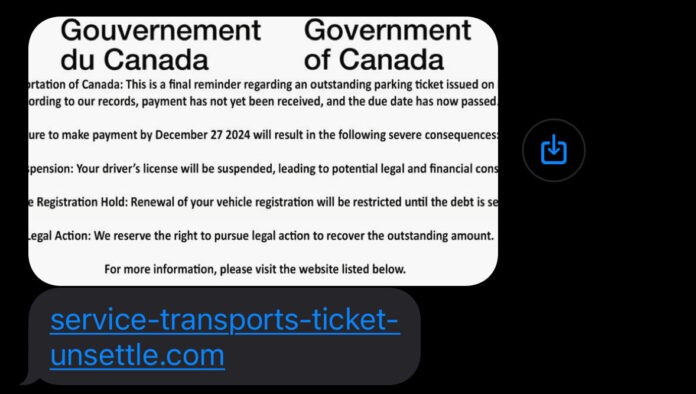Knowing what type of scams and phishing scams are out there is a big part of staying safe according to a local online safety educator.
Owner and Instructor at Social Edge Academy Jessie Fraser explains nowadays it is hard to do anything without being online. Whether it be applying for a job or getting directions, you need an email or application of some sort.
“Being online is a wonderful thing, there are wonderful tools,” Fraser says. “It does make things quite a bit harder to stay safe. There are too many scams online and even just through your text messages.”
Fraser says phishing scams are the number one way individuals and businesses are getting caught, as they are sent a link that says it is going to your bank or a delivery company, but it does not actually go to those places. He says it will go to a website that will look like the actual website, but it is run by someone who has malicious intent.
“I had the opportunity to sit down in a room with researchers from the National Research Council of Canada and we were looking at a way to help protect people. Unfortunately, with the social engineering these scammers use are very good at building themselves up to be trustworthy.”
“Some use emotions to target and make you trust them. The best way that we’ve found to protect people is that the best offence is a good defence. You need to be alert and knowledgeable of what scams are happening, know how to pick them up, how to sense them and understand that you are in control.”
He says a good way to tell if someone is who they say they are is to ask them if you can hang up and call back using the phone number you have for the company. He says if they are who they say they are, then there will be no issue because they will understand you are protecting yourself and want you to stay safe. However, someone who is trying to scam you will most likely get upset and do everything they can to convince you not to make that phone call.
“Staying safe online is as simple as knowing what a phishing attempt is, what that kind of link is going to look like, both through email [and] through a text message,” he says. “The other thing you got to worry about is pop-ups on your computer. A big one that has been around for the last 10 years is when your computer locks up and says you have viruses. It’ll usually be through Apple, Microsoft or Norton. They will never tell you to click a link or call a suspicious number.”
According to Fraser typically computers have a built-in antivirus scanner, so he advises if you ever do get one of those pop-ups to not click on it, but rather take it to a computer safety company or the local London Drugs.
“It’s a very simple process. The technicians will appreciate you coming in to protect yourself rather than clicking or calling and trying to do it yourself if you’re unsure.”
In 2024 there were $638 million in losses reported across Canada connected to fraud, only accounting for roughly five per cent of the losses in the country, because these are the only ones that get reported.
RELATED STORY: LPS highlighting the three R’s during Fraud Prevention Month







